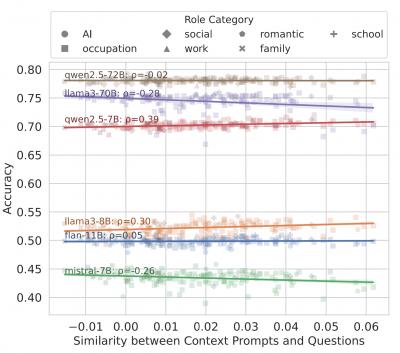As this article (29 page PDF) states, we often think of each other in terms of personas. Also, the use of personas is a staple in user interface design. A persona is a prototypical person, defined in terms of that person's role, and often associated with demographic factors, such as age and gender. This paper asks whether we get better results from a large language model (LLM) if we define a persona in our prompt. The answer is a bt complex, because the use of a persona does change the output, and can even be better in some cases, but the distribution of cases is random, and there's no real net benefit to using personas in prompts. Obviously this finding should inform people using personas in LLMs in learning support applications.
Today: 0 Total: 437 [] [Share]




